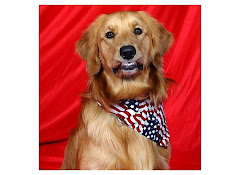Pet Vaccinations: Understanding Vaccinations for Your Cat or Dog
Read more!
By Bill Hendrick
WebMD Pet Health Feature
By Bill Hendrick
WebMD Pet Health Feature
Many pet owners and some animal scientists believe that
we are over vaccinating our pets. They also think that some shots may be
doing more harm than good. One type of cancer in cats, for example, is
known to be caused by vaccinations. In addition, vaccines can cause allergic reactions.
Because reports and
rumors of side effects have become so widespread, pet owners
increasingly are asking their vets about whether or not to vaccinate.
Andy Smith, DVM, a long-time Atlanta veterinarian, says he has “this
conversation with a client twice a week. It’s clear there’s a lot of
confusion and concern.” So WebMD went to some top veterinary experts to
find answers you can use in sorting out your own concerns.
Why do pets need vaccines?
Vaccines protect against contagious, potentially
fatal diseases, says Margret Casal, DMV, PhD. Casal is associate
professor of medical genetics at the School of Veterinary Medicine,
University of Pennsylvania. Vaccines trigger immune responses, she says,
and prepare pets to fight future infections.
Casal tells WebMD that vaccines have saved millions
of pet lives. And even though some once common diseases are now rare,
she says veterinary groups agree that many vaccines are still necessary.
Is there a vaccination controversy?
Yes, says Andrea Looney, DVM, of Cornell University.
Some experts advocate yearly shots, others every three years, and a few
believe no more vaccines are needed after the first year.
Looney says it’s similar to controversies over human
vaccines. “There’s a lot of talk,” she says, “but no evidence [of
widespread harm].”
Casal says fears sparked by this “over vaccination”
controversy have led many pet owners to skip shots for preventable
diseases, causing an alarming rise in pet deaths.
So should all dogs and cats still be vaccinated?
“Absolutely,” says Ronald Schultz, DVM, a pioneer in
clinical immunology at the University of Wisconsin-Madison. But Schulz
is also very much in agreement with those who say pets are being over
vaccinated, calling it a “serious problem.” Often, he says, pets are
vaccinated by vets who just want to keep clients coming in. But too many
vaccines, especially when given in “combo shots,” can “assault” immune
systems.
Read More......















































